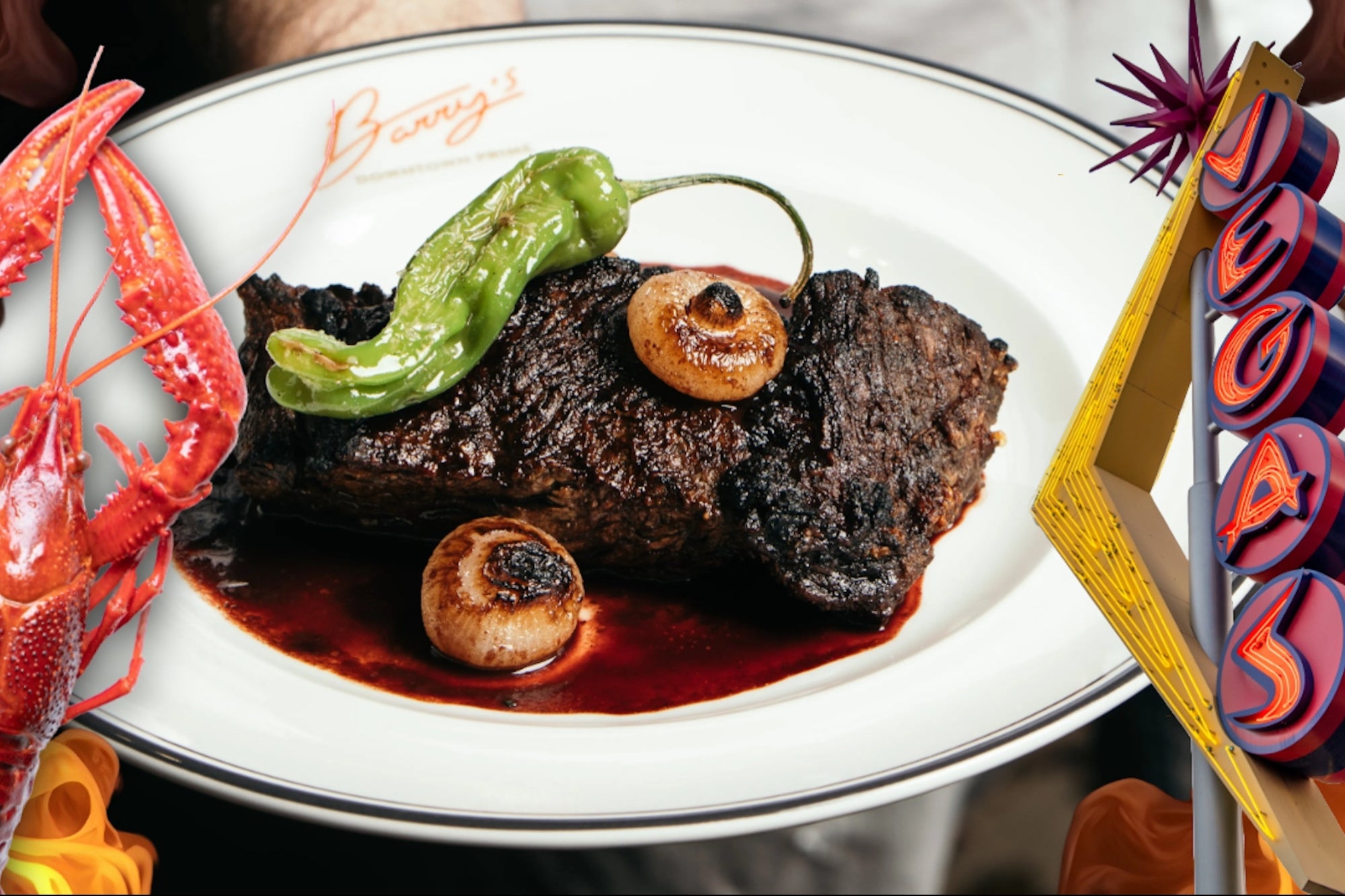Opinions expressed by BIZ Experiences contributors are their own.
A few years ago, an editor at a large publishing house told me astory about some of her bestselling authors. She claims fans willsay just about anything to get their hands on these celebritywriters' latest releases, including "calling my officeshortly before the authors' new books are released and saying:`My father's in the hospital dying. Couldn't you just getthe book to me ahead of time so he can read it before he goes?'"
Compelling writing elicits dramatic, action-packed responseslike these. That's why top sales stars learn to write salesletters with the flair of bestselling authors. Whether it's asales letter, brochure, flier or other advertising piece, it'simportant to become a student of the written word early in thebuilding of your business.
Like anything else, good writing is a skill that must becultivated over time. Here are a few lessons I learned aboutwriting, culled from my experiences in graduate school, during thecourse of my career as an BIZ Experiences, and while writing fivebooks.
Words To The Wise
A word connoisseur cultivates a knowledge of language anddevelops an innate sense of the meaning of words that enables himor her to choose the word that best fits a sentence. For example,starting a sales letter with "I have an urgent request"has much more impact than "Would you be interested in . . ."
Urgent is a compelling word in the context of a sales offering.Your selection of words helps determine how persuasive your writingis and how much impact it will have on your customer-a customer whois inundated daily with dozens of pieces of impersonal mail.
Start developing an extensive vocabulary for your presentations.The goal is not to prove how intelligent you are but to be naturaland clear while trying to persuade your prospects. The more preciseyour written and verbal requests become, the more effective theresults you'll achieve.
Precision is the secret to closing more sales. Precisiondevelops as you expand your vocabulary, using the followingguidelines:
1. Carry a pocket dictionary in your briefcase or purse.Don't rely solely on the spelling checker and thesaurus on acomputer; many of them aren't nearly as extensive as an oldreliable Webster's or Funk & Wagnall.
2. Read the opinion section of the daily newspaper. Look upall the words you don't understand.
3. Build a reference library of dictionaries, thesauruses andbooks about word power. A favorite of mine is Words That Sellby Richard Byron (Caddylak Publishing).
4. Pretend you have to take the Scholastic Aptitude Test(SAT) or Graduate Record Exam (GRE). Go to a bookstore, and buytest preparation books. Study the vocabulary section. Use indexcards, and write one word on each; turn the card over, write thedefinition on the back and study them whenever you have a sparemoment. Eventually your expanded vocabulary will help create aperson who has the power to capture and convert more customers.
5. Enroll in a course on writing for sales and advertising ata community college. Even if you have the budget to use anadvertising agency, you need a basic knowledge of what pulls aresponse and what doesn't.
6. Read at least one new book a month. Choose a varietyof books such as fiction, nonfiction, self-help, referencematerials and poetry. You'll find marvelous ideas and words totrigger your imagination.
7. Use a journal to record ideas that sell. Don'tmiss the opportunity to write down any brilliant flashes you mayhave.
8. Start an advertising scrapbook. Collect"zinger" ads from magazines, newspapers, brochures andmailers. Don't discriminate-take ideas from everywhere. Thegoal is not to copy other people's work but to stimulate yourcreativity and originality.
9. Use simple words and sentences; they have the mostsales impact. An overdressed thought is as distracting as anoverdressed person. If, when you called on a customer, you wore atailored suit with a chartreuse necktie or lots of jewelry, youraccessories might be so distracting, they would detract from yourmessage. In words, as in dress, less is often more.
Once you start making the above lessons a matter of habit, youwill find composing sales letters much easier. Your new-foundawareness of what constitutes effective writing cannot help butinfluence what you write.
Get To The Point
Each time you sit down to write, clearly define the purpose ofyour sales letter, brochure or ad before putting anything on paper.Be able to answer these two questions:
1. What is the purpose of this communication?
2. What compelling words can I use to best get thereader's attention?
Then start writing. Don't stop to evaluate your first draft.People who tell me they can't write well are usually people whostop and think too much. Just get it on paper.
Here's an excerpt from a sales letter with one purpose--tosell a particular product from my line and to prove its value. Theletter generated an income of more than $7,000 per month for asix-month period. The letter started out this way:
"It's a system I know you can use, and it has anironclad, money-back guarantee. So the only question is, Do youwant to add to your income this year? (More about thatlater.)"
The "More about that later" tickles a reader'scuriosity and keeps him or her reading. The letter continued:
"The most important product we sell is ourselves. It isa fact that people do not do business with people they do nottrust. That's why the first part of my course is acomprehensive study about authentically earning the prospect'strust." The letter goes on to detail how the productaccomplishes that goal.
Since all good sales letters ask for the order many timesthroughout the body of the letter-especially at the end-this onecontinued, "You take NO RISK with my you-be-the-judgeFREE-TRIAL OFFERING. I want you to order it now-and to make sureyou don't procrastinate, this offer is only good for a limitedtime."
Strong sales letters are specific about how the order can beaccomplished now. Write in the present tense. Avoid thepassive.
I like ending a sales letter with a P.S. Sometimes I handwritethe postscript myself. Here's the one I used on the aboveletter:
"P.S. Do not treat this offering like another salespitch. I know with certainty this is going to help you. If you weremy best friend, I would tell you not to pass up this offer. Somedayyou will thank me, so ORDER NOW."
If you're still struggling to write a compelling salesletter, here's an exercise that can get your creative juicesflowing: Write a passionate letter to your spouse or significantother. Because your feelings run deep, your "voice" comesthrough on paper. Don't hold back. Next, with the sameintensity, compose a letter to a customer describing your productsor services.
Keep It Simple
A message often creates the strongest impact if the language isvery simple. Elegant techniques often get in the way of what I callthe "selling message." My husband, Mike, and I havecreated all the advertising and marketing promotions at eachcompany we owned. We have won awards for some of these pieces. Ibelieve our work was singled out because we followed our instinctsand kept the message uniform and simple.
Simplicity applies to your theme as well as your words. The sametheme should be carried through all your marketing materials. WhenI opened my first company, I wanted to communicate the importanceof repeat business and quality service. One of the messages I foundmyself repeating to customers was "Remember me." Idecided to use that theme in all our printed material.
We had a graphic artist design a simple forget-me-not flower.The local newspaper ads announcing our opening had charcoal-graysketches of each member of our management team, with the flower andthe words "forget-me-not" under each sketch.
We kept to that theme by passing out forget-me-not seeds to ourprospects and reminding potential customers that if they gave us achance to do business with them, we would deliver"forget-me-not" service.
At that time, our competitors advertised using photos of theirtop salespeople, with an emphasis on how many millions of dollarseach salesperson had produced each month. I wanted to play down thesales figures and sales personalities and play up customer serviceand reliability. We used quotes and letters from satisfiedcustomers to back our claims.
The response was overwhelming, and we continually heard commentssuch as, "Your emphasis on customer satisfaction instead ofsales stats and egos was refreshing." Sticking with one strongtheme paid off big time.
Like those bestselling authors whose words jump off the page,grab you by the collar and refuse to let you go until the story isover, BIZ Experiencess who want to be "best sellers" mustlearn to maximize the power of the pen to persuade and convertcustomers for life.
Danielle Kennedy presents sales and marketing seminars andkeynote address worldwide. She is the author of five sales books aswell as audio and video sales training programs. Write to her incare of BIZ Experiences, 2392 Morse Ave., Irvine, CA 92714.











